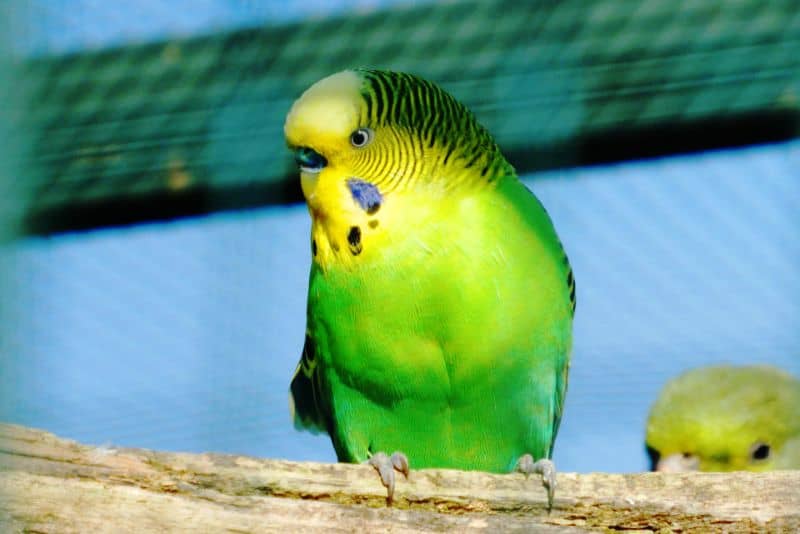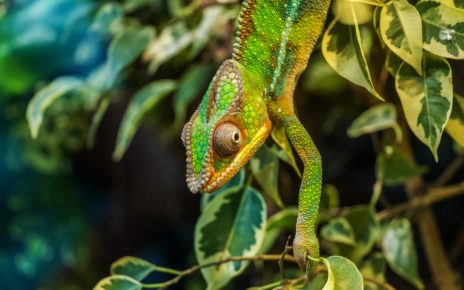Do Parakeets Eat Mealworms? You may be wondering if mealworms are a good source of food for your pet parakeet. The answer to that question is that, in some cases, mealworms can be a healthy and nutritious snack for your bird. So let’s take a closer look at the nutritional benefits of mealworms and find out why they can make a good addition to your bird’s diet.
Can Parakeets Eat Mealworms
Can you feed parakeets mealworms? Yes, parakeets can eat mealworms as a treat. Mealworms are a good source of protein and other nutrients that can help keep your bird healthy. However, mealworms should only make up a small percentage of your bird’s diet – no more than 10% of their total daily intake as too much protein can be harmful to parakeets.
Do Parakeets Like Mealworms
Parakeets mainly eat seeds and grains, but they will enjoy eating mealworms as a special treat. Some parakeets love mealworms, while others couldn’t care less about them. It really depends on the individual parakeet and its nutritional needs.
Egg-laying females need more protein in their diet, and mealworms are an excellent source of protein. Otherwise, parakeets don’t need to eat much protein, so they may not be as interested in mealworms. Ultimately, it comes down to the individual bird to decide if they like mealworms or not.
Are Mealworms Good for Parakeets
Here’s a look at the pros and cons of feeding mealworms to parakeets:
PROS
Mealworms are packed with protein and essential vitamins and minerals, making them an excellent supplemental food source for parakeets. They are also high in fat, which can help keep your bird’s feathers healthy and lustrous if they are molting or looking a little dull.
CONS
Mealworms should only be fed to your bird as an occasional treat, however, as they do contain a good deal of fat. Too much fat can lead to obesity and health problems in birds. Try to give your bird a varied diet that includes both fresh fruits and vegetables and commercially-made bird food.
Mealworms Parasites
Mealworms may also be a potential source of parasites, which can make your bird sick. That’s why it is important to exercise caution when feeding mealworms or any live food to parakeets.
What Do Parakeets Eat in the Wild
Parakeets in the wild eat a variety of things, including seeds, grains, greens, and the occasional insect. They typically forage for food on the ground, but they will also perch on trees to look for insects or other prey.
Do Parakeets Eat Bugs
Parakeets do eat bugs on occasion. In the wild, they mostly eat seeds and fruits, but if they’re looking for extra protein, they’ll also eat insects. This is especially common when they’re breeding or raising chicks, as egg-laying females and chicks need more protein than adult parakeets do.
But don’t worry – your average pet parakeet won’t be snacking on bugs all day long! Most of their diet will still consist of birdseed and other parakeet-friendly foods.
Mealworms for Parakeets
If you’re looking for a nutritious treat for your parakeet, mealworms are an excellent option. These small, worm-like creatures are packed with protein and essential nutrients, making them a healthy snack for your bird.
Mealworms can be purchased live or dried, and both forms have their own benefits.
Live mealworms are more expensive, but they provide a good source of exercise for your bird as they try to catch them.
Dried mealworms are more affordable and easier to store, but they don’t provide the same level of mental stimulation for your bird. Whichever type you choose, make sure to buy them from a reputable source to ensure that your bird is getting the safest and best possible nutrition.
How To Safely Feed Mealworms To Your Parakeet
As with any new food, introduce mealworms to your parakeet gradually to avoid digestive issues. When offered in moderation as part of a balanced diet, mealworms can be a healthy and delicious treat for your feathered friend.
Are Mealworms Safe for Parakeets to Eat?
Mealworms are safe for parakeets to eat in moderation. However, if your parakeet eats too many mealworms, it could develop an intestinal blockage. If you’re concerned about your parakeet’s health, talk to a veterinarian about the best diet for your pet.
How Many Mealworms Can a Parakeet Eat in One Day?
A parakeet can eat 3 to 5 mealworms or 1 to 3 superworms in one day. Mealworms are the better choice because they are smaller, making them easier to swallow and digest. Superworms, on the other hand, are a little bigger and maybe more appealing to some birds, but they also have a higher fat content.
FAQs About Feeding Mealworms To Parakeets
What Are Mealworms
Mealworms are the larval form of the beetle Tenebrio molitor. They are typically found in decaying organic matter or freshly harvested grain.
What Do Mealworms Look Like
Mealworms are a type of grain-eating larvae that is typically 1- inch (2.5 centimeters) long. They have a light tan to reddish body, and they have six legs that are located near their head.
Where Can You Buy Mealworms
You can buy mealworms online or in physical stores at pet stores. Make sure to get them from a reputable source, as there are some companies that sell unhealthy or live insects that could potentially harm your pet.
What Are Some Other Foods That Parakeets Can Eat
Although pellets are the primary food for parakeets, they can also enjoy a variety of other foods.
Eggs, for example, are an excellent source of protein and can be scrambled or hard-boiled and offered in small pieces.
Peas are another option and can either be cooked or raw, and corn is also safe for parakeets to eat.
Ultimately, there are many different foods that parakeets can enjoy, so be sure to provide them with a variety of options to keep them healthy and happy.
In addition, it is important to make sure that your bird has access to fresh water at all times. By providing a variety of foods, you can help your parakeet stay healthy and happy.






